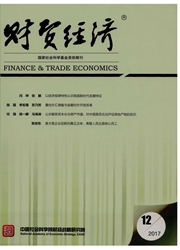

 中文摘要:
中文摘要:
本文利用官员任职期间的晋升预期差异以及空间计量模型,研究地方官员面临的政治晋升激励及相对绩效考核方式对于城市公共品投资的影响。基于1999-2013年地级市面板数据,本文的实证结果表明,地方官员倾向于在任职关键时点增加具有短期增长效应的经济性公共品投资,而具有长期投资属性的社会性公共品投资则随官员任职年数增多而减少,这意味着官员晋升激励对公共投资产生了推动效应。此外,在官员晋升激励更强的城市,经济性公共品投资的地区间策略互动更强,从而验证了标尺竞争机制,但该机制并未出现在社会性公共品投资上。最后,地区发展阶段差异导致官员的公共品投资行为出现异质性:晋升激励推动东部地区更多投资于社会性公共品,而中西部地区更多投资于经济性公共品。这意味着在社会性公共品供给上,地区间的差距将进一步扩大。
 英文摘要:
英文摘要:
Using variations of local officials' promotion prospect across their year in office and based on spatial regression model,this paper examines how local officials' political promotion incentive and the relative performance evaluation from the central government affects the public goods investment.Using prefecture-level panel data during 1999~2013,empirical evidences show that local officials tend to increase investment on economic public goods at strategically important time points during their tenures,while investment on social public goods declines with the increase of local official's year in office.This difference relates to the fact that public goods usually translate into short-term economic growth while social public goods' effect on growth takes a long time to become significant.Besides,I find that in cities with more politically incentive official the strategically interactions across cities become stronger in investment on public goods,verifying the existence of yardstick competition.However,this mechanism is not significant in investment on social public goods.Finally,differences of economic development across cities lead to heterogeneity in public goods investment.Promotion incentives play a significant in social public goods investment in coastal cities,while local officials from inland cities are more incentive to invest economic public goods.This heterogeneity implies that regional disparity of the supply of social public goods will be further enlarged.
 同期刊论文项目
同期刊论文项目
 同项目期刊论文
同项目期刊论文
 期刊信息
期刊信息
